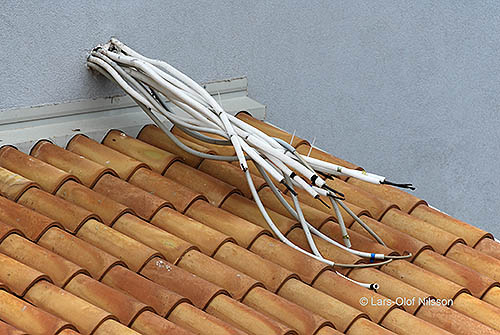False friends are words in two languages that look and/or sound alike but whose meanings are completely or partially different. The two words may have—and often do have—the same origin (If they do not have the same origin, they are called false cognates).
It is clear that false friends may give rise to amusing and sometimes embarrassing mistakes, but they can also cause potentially disastrous misunderstandings with serious consequences.
Here are some examples of English false friends in other languages
(The first letter in German nouns is upper-case):
English–French
| car | coach, bus, van | |
| cave | cellar, basement, nightclub | |
| figure | face | |
| journal | newspaper, magazine | |
| lecture | reading, reading matter | |
| location | renting, hiring; lease, reservation | |
| radio | X-ray | |
| route | road | |
| sensible | sensitive | |
| smoking | dinner-jacket, tuxedo | |
| English–German | ||
| also | so, thus | |
| blank | shiny, bright | |
| chef | leader, boss | |
| chips | potato crisps | |
| fatal | awkward, embarrassing | |
| gift | poison, venom | |
| hall | sound, echo | |
| kind | child | |
| lack | varnish, lacquer | |
| list | cunning, trick | |
| mode | fashion | |
| plump | awkward; crude; obvious | |
| smoking | dinner-jacket, tuxedo | |
| still | quiet, silent | |
| taste | key (on a keyboard) | |
| English–Italian | ||
| brace | embers, charcoal | |
| cute | skin | |
| due | two | |
| fame | hunger, starvation | |
| fare | do, make | |
| media | average | |
| replica | repetition; reply | |
| smoking | dinner-jacket, tuxedo | |
| stile | stylus | |
| turbine | whirlwind, swirl | |
| English–Spanish | ||
| actual | current, topical, fashionable | |
| cabaret | nightclub | |
| editor | publisher | |
| eventual | possible; temporary | |
| particular | private, personal | |
| sensible | sensitive; responsive; emotional | |
| villa | small town, municipality | |
| virtual | potential, possible | |
| English–Swedish | ||
| art | species | |
| barn | child | |
| bra | good, well | |
| fart | speed | |
| faster | aunt | |
| frisk | healthy; fresh | |
| from | pious | |
| glass | ice cream | |
| kiss | pee | |
| semester | vacation | |
| slut | end | |
| smoking | dinner-jacket, tuxedo |
You can read about my book on English–Swedish false friends and other treacherous words here.










Recent Comments